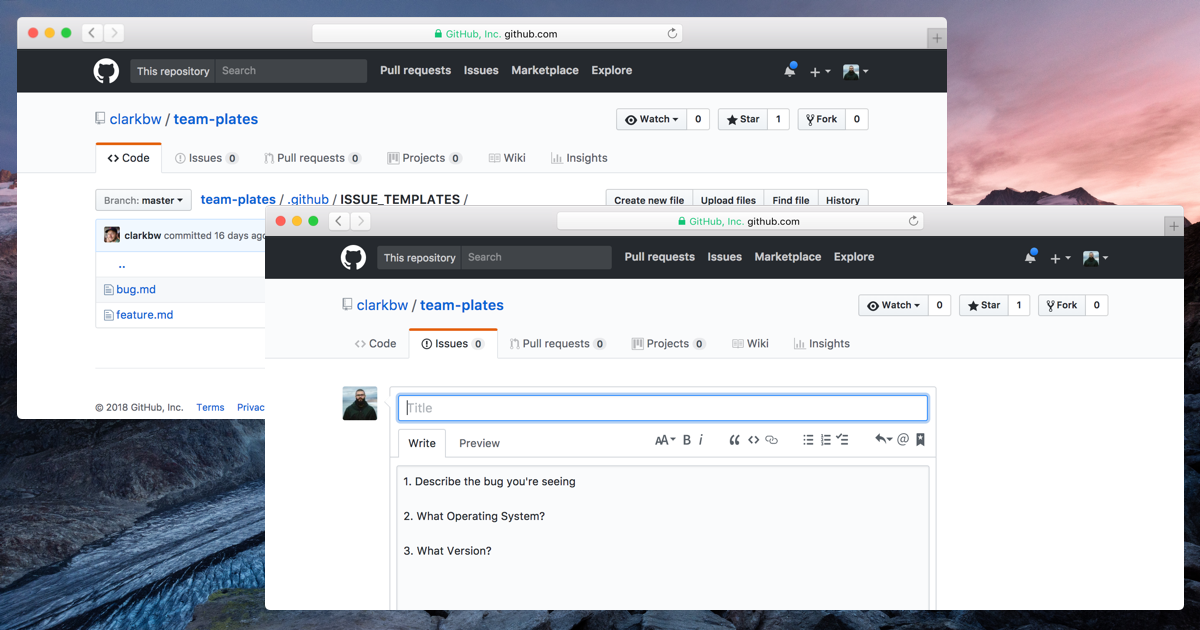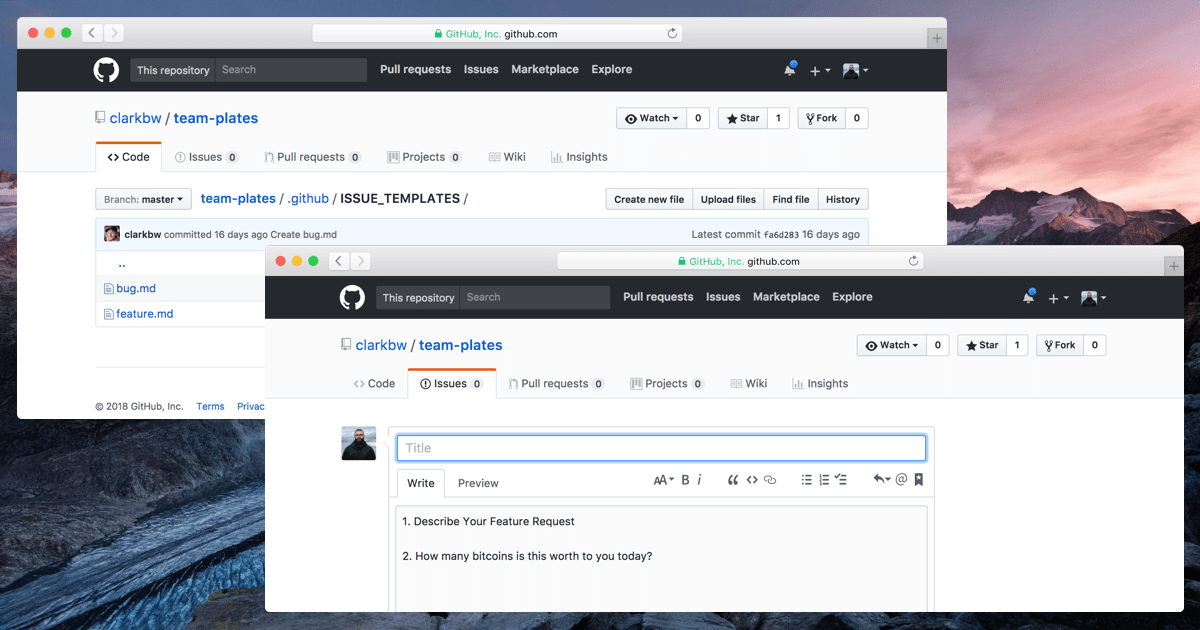Multiple issue and pull request templates
Issue and pull request templates help teams gather the right information from the beginning of a thread, but sometimes one template just isn’t enough. Now project maintainers can have and…
Issue and pull request templates help teams gather the right information from the beginning of a thread, but sometimes one template just isn’t enough. Now project maintainers can have and use multiple templates in their repositories.

To add multiple issue templates to a repository create an ISSUE_TEMPLATE/ directory in your project root. Within that ISSUE_TEMPLATE/ directory you can create as many issue templates as you need, for example ISSUE_TEMPLATE/bugs.md. To use those issue templates add ?template= and your template name to the new issue URL. Continuing the example, if you create the template bugs.md you add ?template=bugs.md to the new issue URL, so it becomes /issues/new?template=bugs.md.

Your default ISSUE_TEMPLATE.md files will continue to work as the default when a template isn’t specified in the new issue URL. Pull request templates follow the same pattern: add a directory called PULL_REQUEST_TEMPLATE to the root directory of your repository, and add the ?template= to your pull request URLs. And if you’re worried about extra clutter in the root directory of your project, all of these directories work within the .github folder as well
To read more or learn about additional options, check out the documentation.
Written by
Related posts

We need a European Sovereign Tech Fund
Open source software is critical infrastructure, but it’s underfunded. With a new feasibility study, GitHub’s developer policy team is building a coalition of policymakers and industry to close the maintenance funding gap.

GitHub Availability Report: June 2025
In June, we experienced three incidents that resulted in degraded performance across GitHub services.

From pair to peer programmer: Our vision for agentic workflows in GitHub Copilot
AI agents in GitHub Copilot don’t just assist developers but actively solve problems through multi-step reasoning and execution. Here’s what that means.